Blueberries: delicious, nutritious, and a joy to grow in your garden. They’re a favorite among gardeners, and for good reason! These sweet and tangy berries are packed with antioxidants and vitamins. But, like any plant, blueberries have their friends and enemies in the garden. In this article, we’ll explore blueberry companion plants, helping you understand which plants make the best allies and which ones you should avoid.
With this knowledge, you’ll be better equipped to grow a thriving blueberry patch. But first, let’s learn why you need blueberries in your garden.
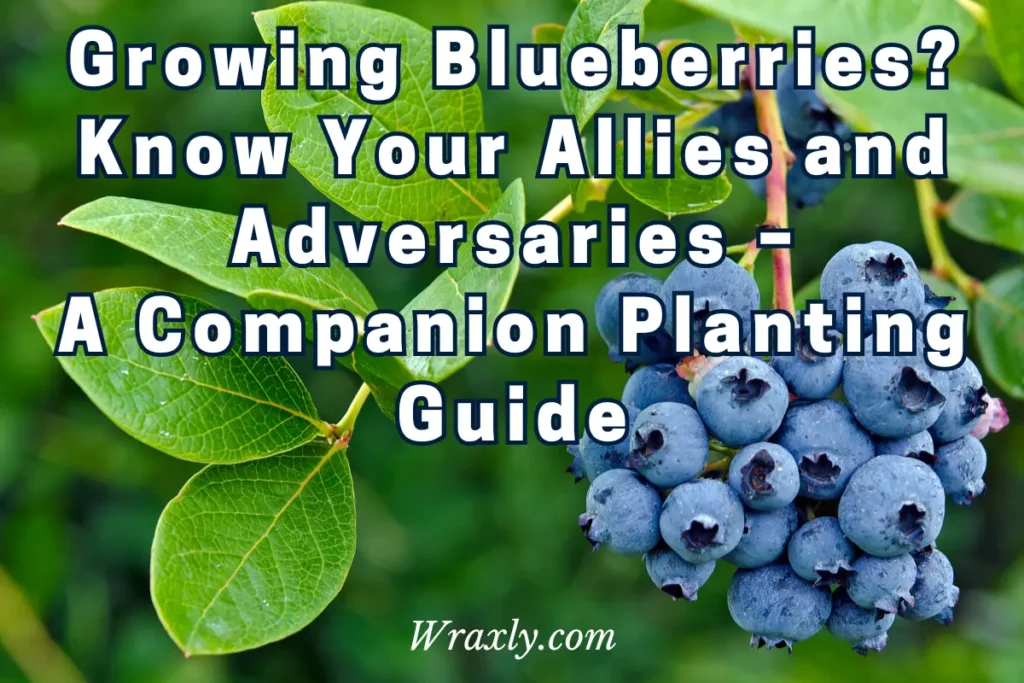
Why Plant Blueberries?
Blueberries aren’t just any fruit; they’re nature’s tiny treasures. These small, round berries are packed with flavor and many health benefits.
They’re often called “superfoods” due to their high antioxidant content, particularly anthocyanins, which give them their rich blue color. These antioxidants work diligently to combat harmful free radicals in our bodies, supporting overall health and well-being.
Aside from their nutritional value, blueberries have lush green foliage, transforming into a beautiful autumn spectacle of vibrant reds and oranges.
Moreover, they’re relatively easy to cultivate, making them a popular choice for home gardeners.
The best part? Blueberries can be used in many culinary creations, from pies and muffins to smoothies and jams. They’re a wonderful addition to breakfast dishes, salads, and desserts, adding a sweet and tangy twist to your favorite recipes.
Furthermore, blueberries offer numerous health benefits. They’re associated with improved cognitive function, heart health, and reduced risk of chronic diseases.
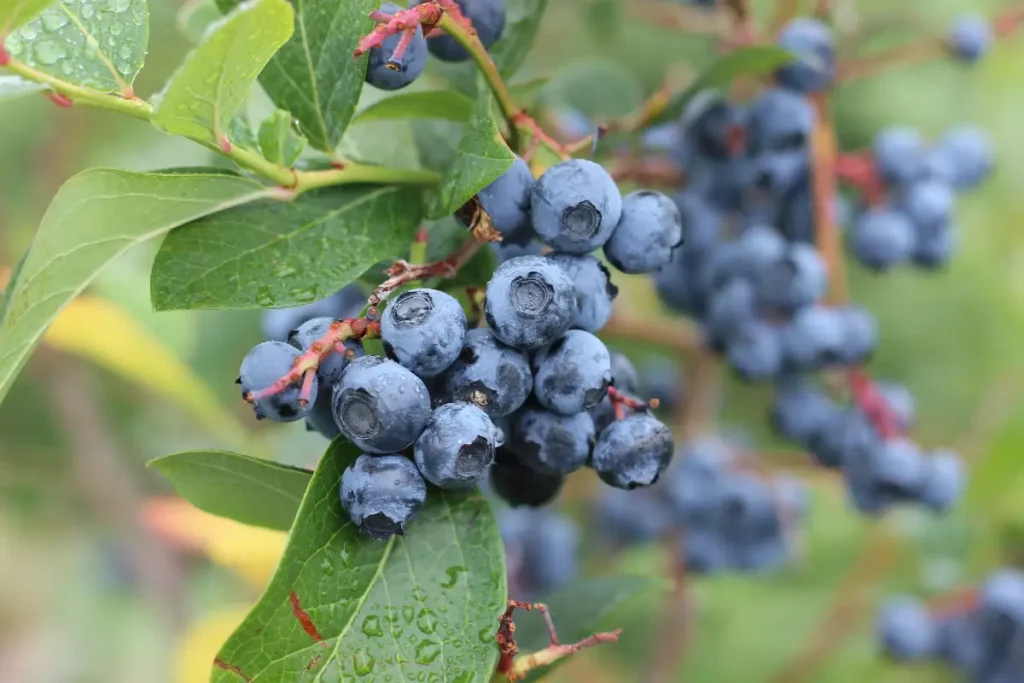
Their natural sweetness makes them a healthier alternative to sugary snacks, and their fiber content aids digestion.
In your garden, blueberries can be a source of delicious fruit and a hub for biodiversity when paired with the right companion plants.
Understanding their allies and adversaries in the garden can create a thriving and harmonious ecosystem that benefits your blueberries and the environment.

15 Blueberry Companion Plants
Here’s a list of the best companion plants for blueberries:
1. Azaleas
Azaleas aren’t just pretty flowering shrubs; they also play a crucial role in enhancing blueberry growth. These acid-loving companions help maintain the optimal pH level in the soil for blueberries.
They create a perfect acidic environment in which blueberries thrive. Choose azalea varieties that can tolerate the same growing conditions as blueberries.
2. Rhubarb
Rhubarb’s large, leafy growth serves multiple purposes in a blueberry patch. It provides shade to the blueberry plants and contributes to moisture retention in the soil.
This natural shade and moisture regulation are especially beneficial in hot and dry climates, preventing soil from drying out too quickly.
3. Strawberries
Planting strawberries near blueberries is a win-win situation, for they make excellent blueberry companion plants.
Strawberries attract pollinators, which can enhance blueberry pollination, potentially leading to higher yields. Additionally, combining blueberries and strawberries creates a delightful berry patch in your garden.
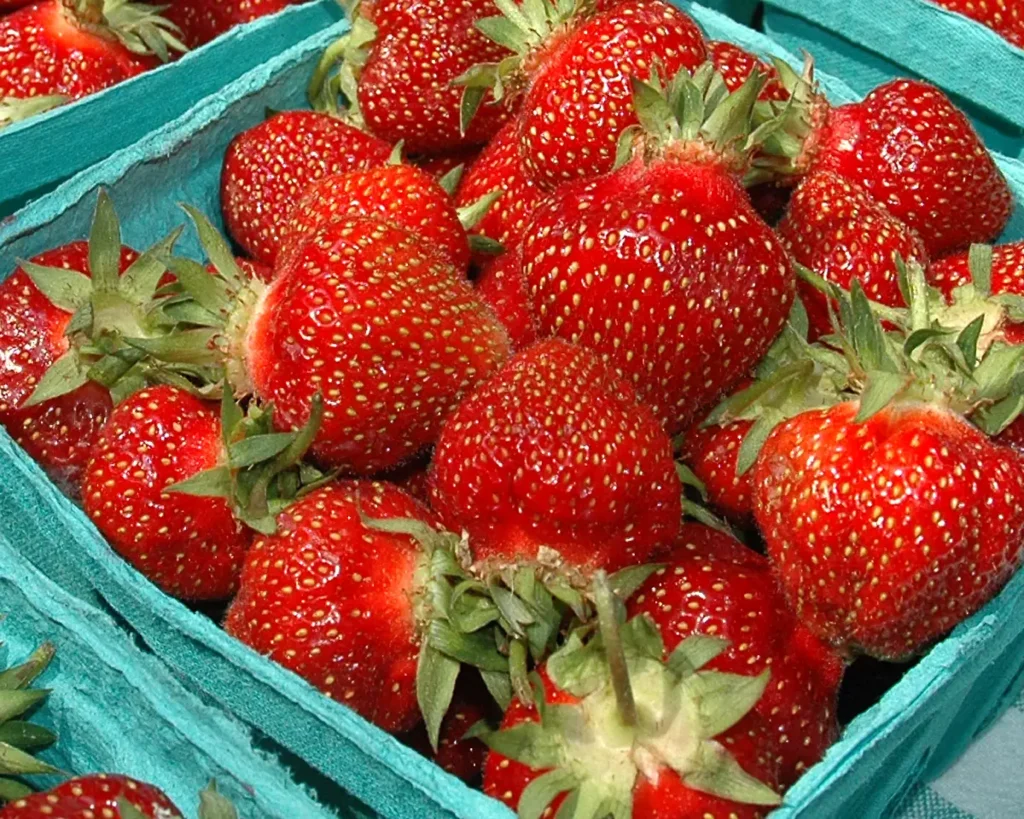
4. Nasturtiums
These vibrant, edible flowers are a multi-purpose companion plant. They add color to your garden and act as a natural pest deterrent.
Nasturtiums help keep away aphids, whiteflies, and squash bugs, which could otherwise harm your blueberry bushes.
5. Chives
Chives are excellent at deterring aphids, a common pest that can damage blueberry plants. Their pungent aroma and insect-repelling properties make them an excellent choice as a protective border around your blueberries.
6. Dill
Dill’s feathery leaves and attractive flowers serve a dual purpose in your garden. They attract beneficial insects, such as ladybugs and lacewings, and add a touch of beauty and diversity to your blueberry patch.
These beneficial insects help keep harmful pests at bay, therefore they make excellent blueberry companion plants.
7. Lupines
Lupines are tall, showy flowers with the added benefit of nitrogen fixation.
These plants have a symbiotic relationship with nitrogen-fixing bacteria in their roots, which can enrich the soil with essential nutrients, promoting healthier blueberry growth.
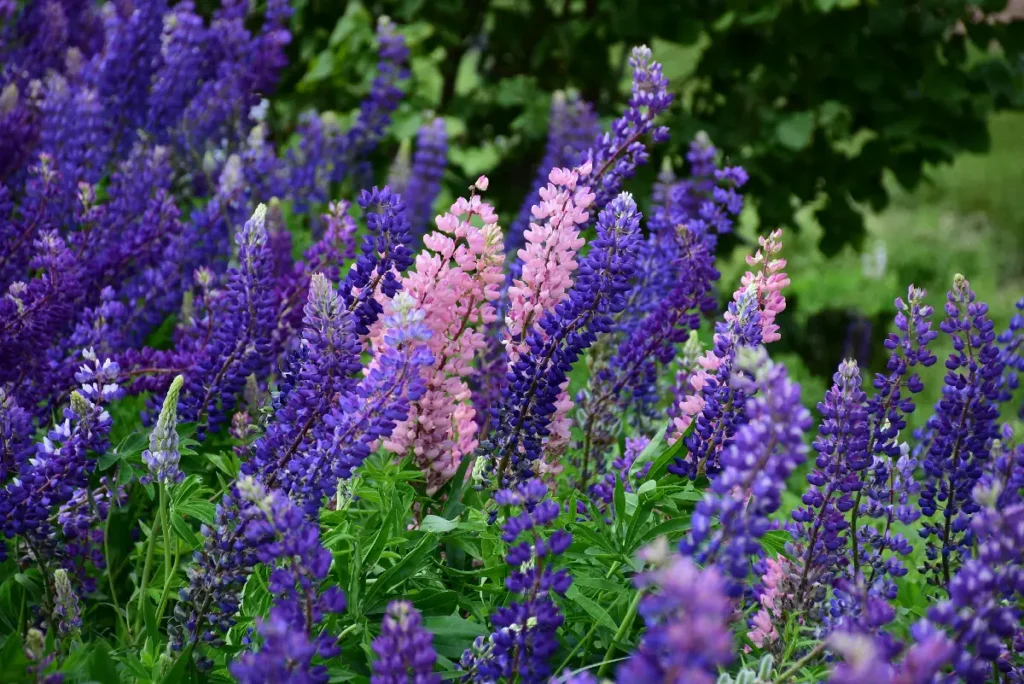
8. Blackberries
Planting blackberries alongside blueberries is like creating a dynamic duo. Blackberries are closely related to blueberries and share similar growing conditions, including acidic soil preferences.
Planting them together can help you create a natural hedgerow that provides privacy and beauty while simplifying care.
9. Borage
Borage is a pollinator magnet. The brilliant blue flowers of this plant attract bees and other beneficial insects to your garden.
These additional pollinators can significantly increase blueberry yields. Borage also boasts a deep taproot, which helps bring nutrients from deep within the soil to the surface.
10. Tansy
Tansy’s strong aromatic scent deters various garden pests, such as ants, flies, and squash bugs. Planting tansy near your blueberries can help create a protective barrier against these potential adversaries, thus making them excellent blueberry companion plants.
11. Marigolds
Marigolds add color to your garden and serve as a natural nematode repellent. Nematodes are microscopic worms that can damage blueberry roots.
Marigolds release chemicals that deter nematodes, helping to keep your blueberry bushes healthy.
12. Garlic
The pungent aroma of garlic is well-known for repelling various pests in the garden. Planting garlic near your blueberries can help deter aphids, Japanese beetles, and other unwanted visitors.
13. Parsley
Parsley attracts beneficial insects that can help protect your blueberries from unwanted pests. These insects include ladybugs, lacewings, and parasitic wasps, natural pest control agents.
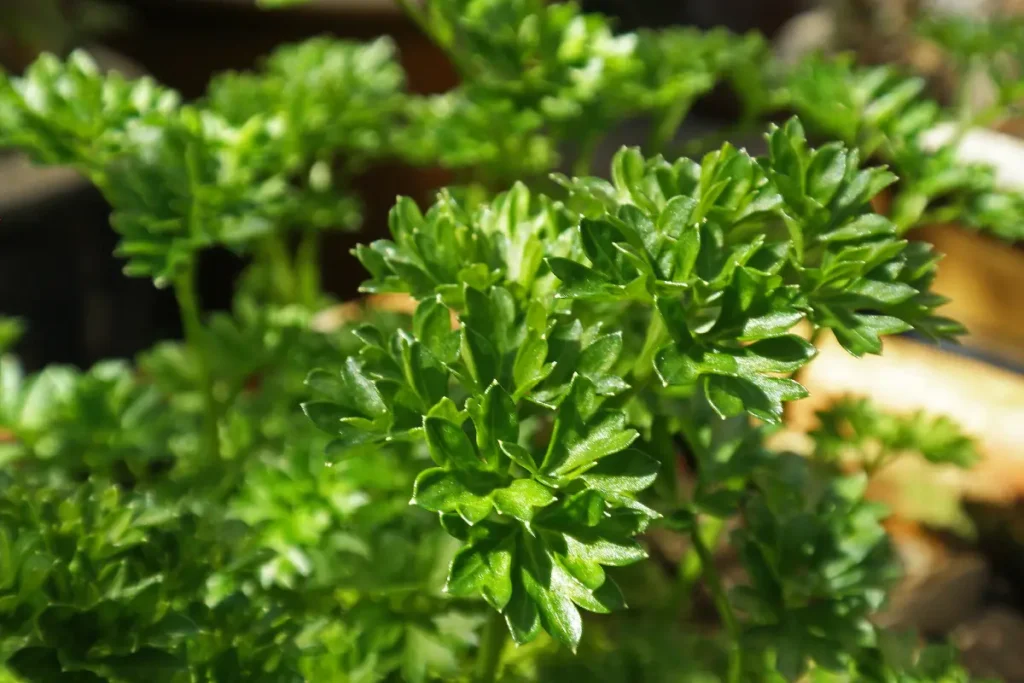
14. Comfrey
Comfrey is a good plant to grow near blueberries. It helps the soil by collecting useful nutrients and returning them when its leaves break down.
Comfrey leaves also make a great natural cover for the soil, keeping it moist and preventing growing weeds.
Plus, bees like the pretty flowers on comfrey, and they can help pollinate the blueberry plants, which means more blueberries for you.
Also, comfrey’s roots can help make the soil less packed and hard, which is good for the blueberries because they don’t like soggy soil.
Just remember to trim comfrey sometimes to keep it in check.
15. Lemon Balm
Lemon balm, a delightful herb with a pleasant aroma, is a natural pest controller that enhances garden pollination.
Belonging to the mint family, it’s a low-maintenance plant, though it does tend to spread. Consider cultivating lemon balm in pots close to your blueberry plants to prevent it from dominating your garden.
By thoughtfully selecting these companion plants, you can create a thriving blueberry patch that produces delicious fruit and promotes biodiversity and a balanced ecosystem in your garden.

8 Plants to Avoid Planting with Blueberries
While many plants can enhance blueberry growth, some should be kept at a distance, such as the following:
1. Potatoes
Blueberries thrive in acidic soil, whereas potatoes prefer a more alkaline environment. Planting them together can lead to soil imbalances, negatively impacting both crops.
2. Tomatoes
Tomatoes can attract similar pests to those that affect blueberries. Additionally, tomatoes prefer slightly alkaline soil, making them less compatible with blueberries’ acid-loving nature.
3. Peppers
Peppers have comparable soil preferences and pest issues to tomatoes. Planting them near blueberries can introduce unwanted pests and soil conflicts.
4. Eggplants
Eggplants are the same plant family as tomatoes and peppers (Solanaceae). They share similar soil and pest preferences, making them less than ideal-blueberry companions.
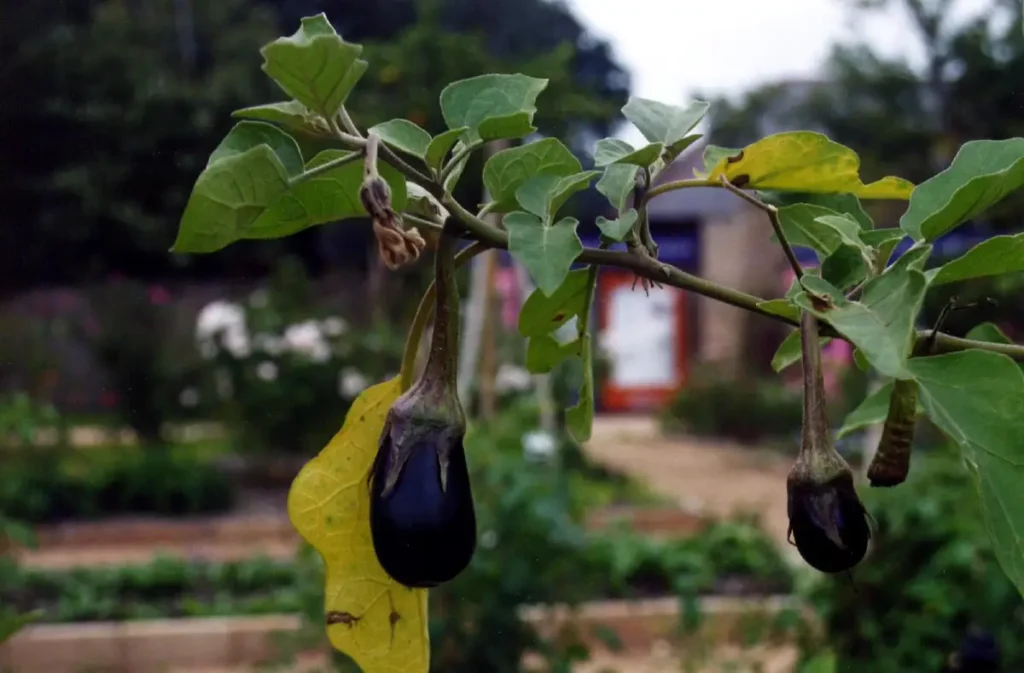
5. Brassicas (Cabbage, Broccoli, etc.)
Brassicas, like broccoli and cabbage, have different soil pH and nutrient requirements. They can compete with blueberries for resources, reducing growth for both crops.
6. Mint
Mint may seem like a refreshing herb in your garden, but its invasive nature makes it a less-than-ideal companion for blueberries. Mint tends to spread rapidly and can overtake your blueberry bushes.
The aggressive growth of mint can crowd out your blueberries, leaving them with limited space and resources to thrive.
Therefore, it’s best to plant mint in a separate area of your garden or in containers to prevent it from encroaching on your blueberry patch.
7. Oregano
While oregano is a versatile and flavorful herb in the kitchen, it can be unpleasant in the garden.
Oregano’s spreading nature can quickly overtake the space around your blueberry bushes, causing them to become crowded and potentially limiting their growth.
It’s advisable to plant oregano in a separate area or in containers to prevent it from encroaching on your blueberries.
8. Vining Plants like Grapes
Vining plants such as grapes should be planted far from your blueberries. These vigorous climbers have a way of intertwining and creating dense canopies, which can overshadow your blueberry bushes and deprive them of essential sunlight.
Blueberries need ample sunlight for photosynthesis, so planting vining plants too close can hinder their access to this vital resource.
For Further Reading
- Sunflower Companion Plants
- Parsley Companion Plants
- Lavender’s BFFs
- Spinach’s Garden Allies: The Top Vegetables, Herbs, and Flowers for Companion Planting
Blueberry Companion Plants: Closing Thoughts
In this companion planting guide, we’ve explored the wonderful world of growing blueberries with the help of companion plants.
Choosing the right companions can improve your blueberry yield, ward off pests, and create a harmonious garden.
Blueberries love acidic soil, so selecting plants that thrive in similar conditions is key to a successful garden. On the flip side, avoid planting blueberries near those that prefer alkaline soil.
With this knowledge, you’ll be well on your way to cultivating a thriving blueberry patch that looks beautiful and provides you with a bountiful harvest year after year.

Darrell has a passion for gardening that he inherited from his father. Go here to read more about the influence his father played in his love for gardening. If you want to send Darrell a quick message, then visit his contact page here.

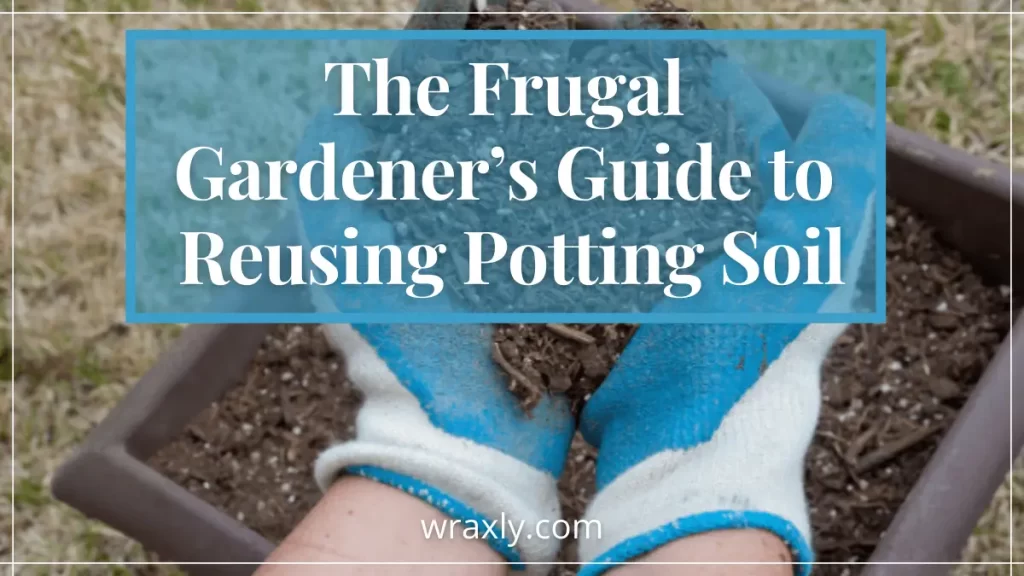

![10 Common Container Garden Mistakes to Avoid [Beginner’s Guide]](https://wraxly.com/wp-content/uploads/2021/02/10-Common-Container-Garden-Mistakes-to-Avoid-Beginners-Guide-1200-1024x576.webp)